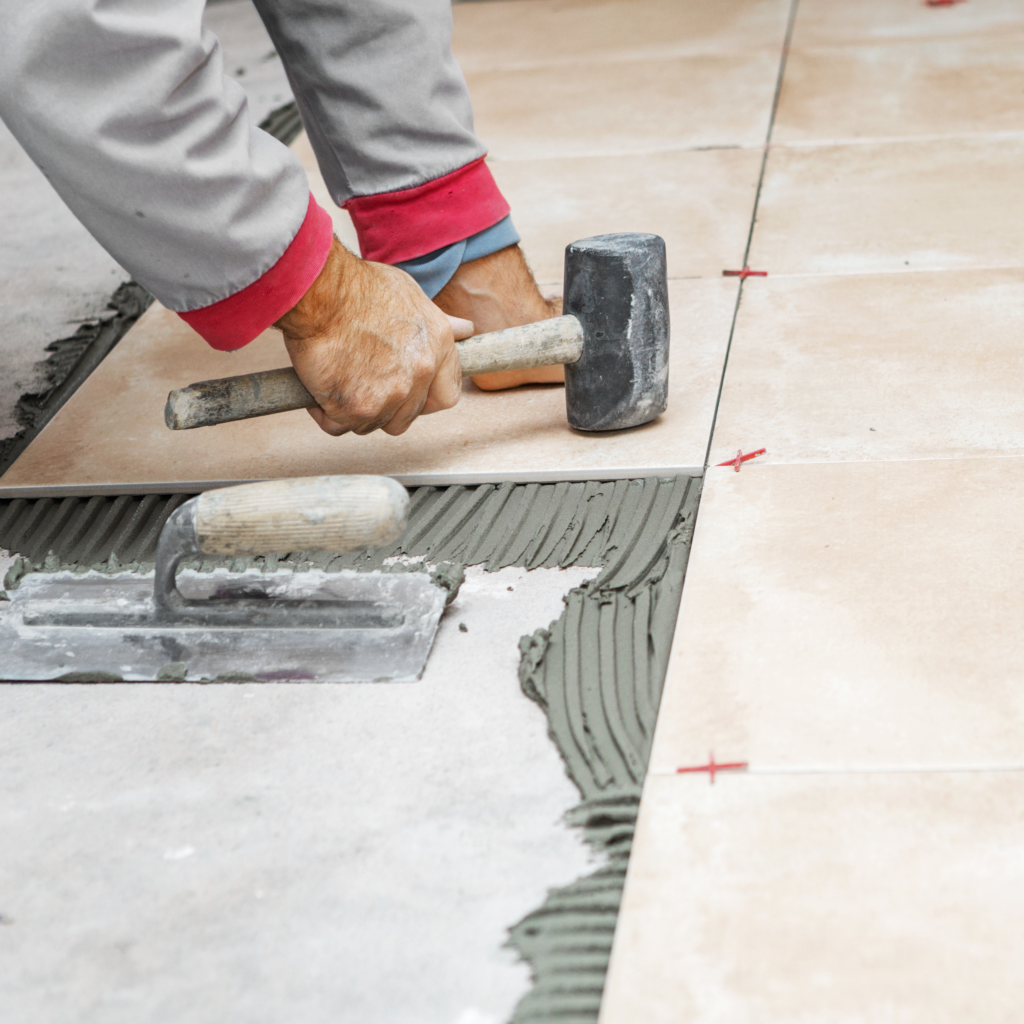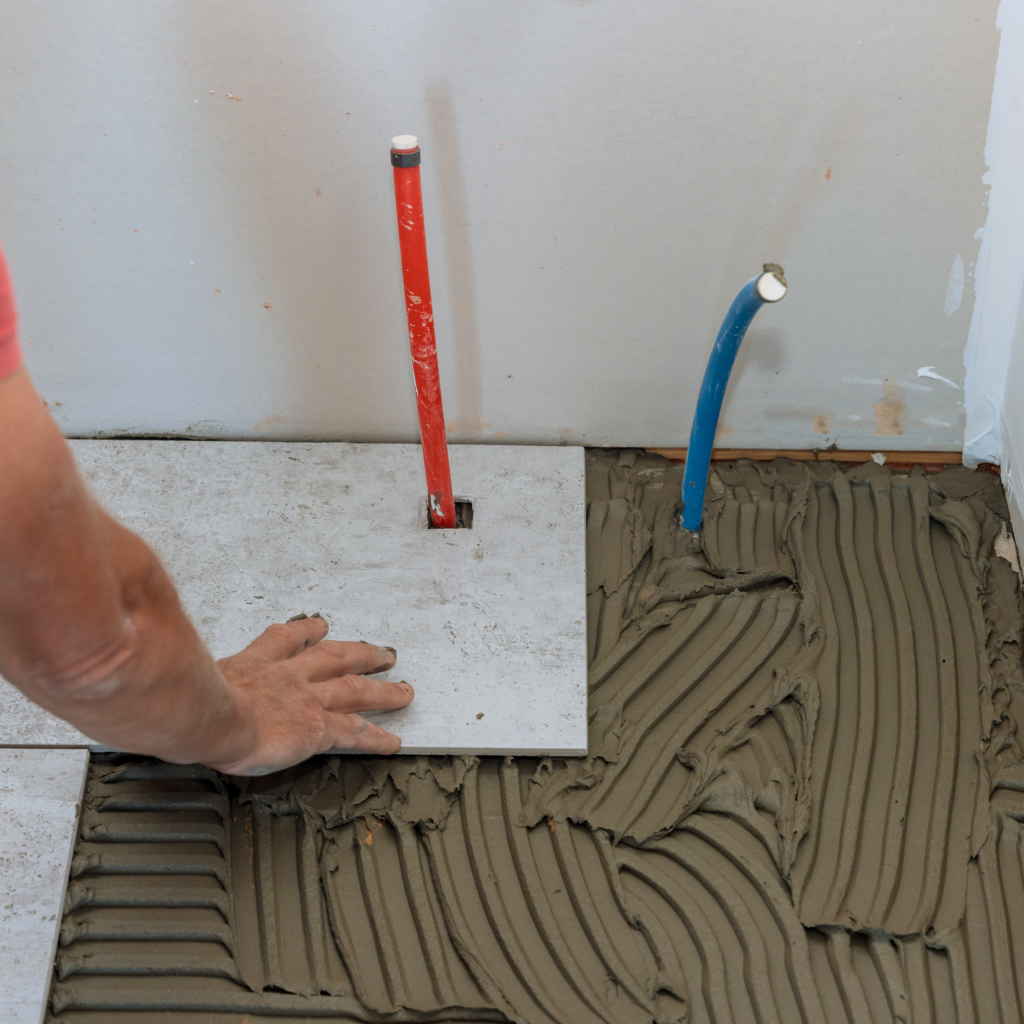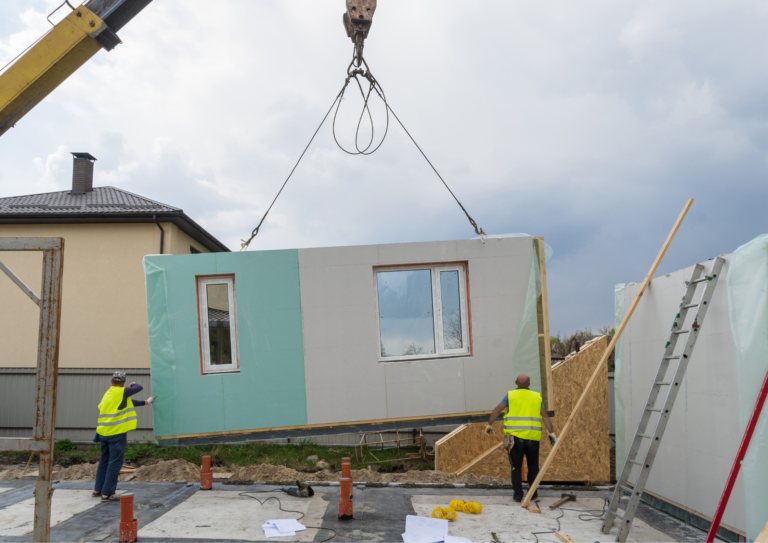Granite floor installation is a popular choice for engineers, architects, business owners, etc., due to its durability, natural beauty, and low maintenance cost. If you are someone who wants to use granite flooring so you must know about the types of granite tiles, the installation of granite, and the pros and cons of using granite for floors and other places. In addition, the most important thing one must keep in mind before taking the decision is how much granite flooring costs. This blog sheds light on each and every aspect in the detail, mentioned above.
What is Granite?

Granite is a type of igneous rock that forms from the slow cooling and solidification of magma beneath the Earth’s surface. It is composed mainly of quartz, feldspar, and mica, with small amounts of other minerals. Granite is popular for its durability and strength. Furthermore, these qualities make it a popular choice for a variety of construction and design purposes which include as a material for kitchen countertops, flooring, and monuments.
What are the Types of Granite?
Granite is a natural stone that is formed from molten magma and comes in a wide variety of colours, patterns, and textures. Hence, there are different types of granite having unique features and suitability according to conditions.
| Type of Granite | Texture | Place of Quarry | Features |
|---|---|---|---|
| Absolute Black Granite | Solid black granite with a smooth and polished surface | India | Durable, timeless and elegant look |
| Blue Pearl Granite | Stunning blue and grey granite | Norway | Small flecks of reflective minerals create a shimmering effect in the light |
| Kashmir White Granite | Light grey granite | India | Small specks of black and grey minerals create a beautiful contrast against the light background |
| Verde Butterfly Granite | Green and grey granite | Brazil | The unique, bold pattern and swirling veins of green and grey create a striking visual effect |
| Santa Cecilia Granite | Beige and brown granite | Brazil | Warm and inviting look |
| Black Pearl Granite | Black and grey granite | India | Small specks of reflective minerals create a beautiful shimmering effect in the light |
| White Ice Granite | White and grey granite | Brazil | Clean and modern look |
| Tan Brown Granite | Brown and black granite | India | Warm and inviting look |
| Giallo Ornamental Granite | Beige and brown granite | Brazil | Classic and timeless look |
| Ubatuba Granite | Green and black granite | Brazil | Bold and dramatic look that makes it perfect for creating a statement in any space |
Steps for Installing Granite Floor Tiles
There are seven steps which are to be followed for installing granite floor tiles or anywhere;
1. Surface Preparation
To begin with, before installing the granite tiles, it’s important to prepare the surface properly. The surface should be clean, dry, and level. If necessary, use a self-levelling compound to even out any uneven areas. Remove any old flooring, and ensure that the subfloor is stable and in good condition.
2. Measurements and Planning
Measure the area where you will be installing the granite tiles, and calculate how many tiles you will need. Plan the layout of the tiles, taking into account any patterns or variations in the colour of the tiles. Thus, You can create a mock-up of the layout on paper or use a digital design tool to visualize how the finished floor will look.
3. Cutting of Tiles
Using a wet saw or tile cutter, cut the granite tiles to the appropriate size and shape. Make sure to wear protective eyewear and gloves when cutting the tiles, as the process can produce sharp edges.
4. Laying the Tiles
Starting in the centre of the room, lay the tiles according to your planned layout. Use a notched trowel to apply a thin layer of adhesive to the surface, and press the tiles firmly into place. Use spacers to ensure that the tiles are evenly spaced, and use a level to check that the tiles are level and flat.
5. Grouting of Joints
Once the adhesive has dried, remove the spacers and fill the joints between the tiles with grout. Furthermore, use a rubber float to spread the grout evenly, making sure to fill all the gaps. Lastly, wipe away any excess grout with a damp sponge, and allow the grout to dry completely.
6. Sealing of Joints
To protect the granite tiles from stains and moisture, it’s important to seal them after they are installed. So, choose a high-quality sealer that is appropriate for your specific type of granite, and apply it according to the manufacturer’s instructions. Allow the sealer to dry completely before walking on the tiles.
7. Finishing Touches
Once the sealer is dry, you can add any finishing touches to the floor. Then, install baseboards or trim around the edges of the room, and clean the tiles thoroughly with a pH-neutral cleaner to remove any residue or dust.

Advantages and Disadvantages of Using Granite
| Advantages | Disadvantages |
|---|---|
| Durability: Resistant to scratches, stains, and heat, making it ideal for high-traffic areas. | Cost: It is a premium product that comes with a high price depending upon thickness, pattern, colour, etc. |
| Aesthetics: Variety of colours, patterns, and finishes. | Heavy: It requires professional installation. |
| Easy Maintenance: It does not require sealing or polishing, making it cost-effective. | Porous: Porous granite can absorb liquids, which can lead to staining or discolouration. |
| Hygienic: It does not harbour bacteria or germs. | Seams: Slabs are not seamless |
| Long-lasting: A long-lasting material that can last for decades. | Maintenance: Granite can become susceptible to damage from acidic liquids, such as lemon juice or vinegar. |
How Much Granite Installation Costs
The average cost of granite installation ranges from $35 to $100 per square foot. However, this price can vary depending on the factors mentioned above. For example, higher-quality granite can cost up to $200 per square foot, while thicker granite can cost up to $150 per square foot.
Conclusion
Granite has many uses such as for flooring, countertops, kitchen and other areas. There are different types of granite depending on the features, the area of the quarry and their intrinsic characteristics. Furthermore, the granite floor tiles installation involves seven steps. Although, granite has many advantages yet it has many disadvantages as well as mentioned above. Each country has many stores where granite is dumped. Lastly, the installation cost of granite depends upon various factors such as thickness, pattern, area where the tiles need installation, etc.





